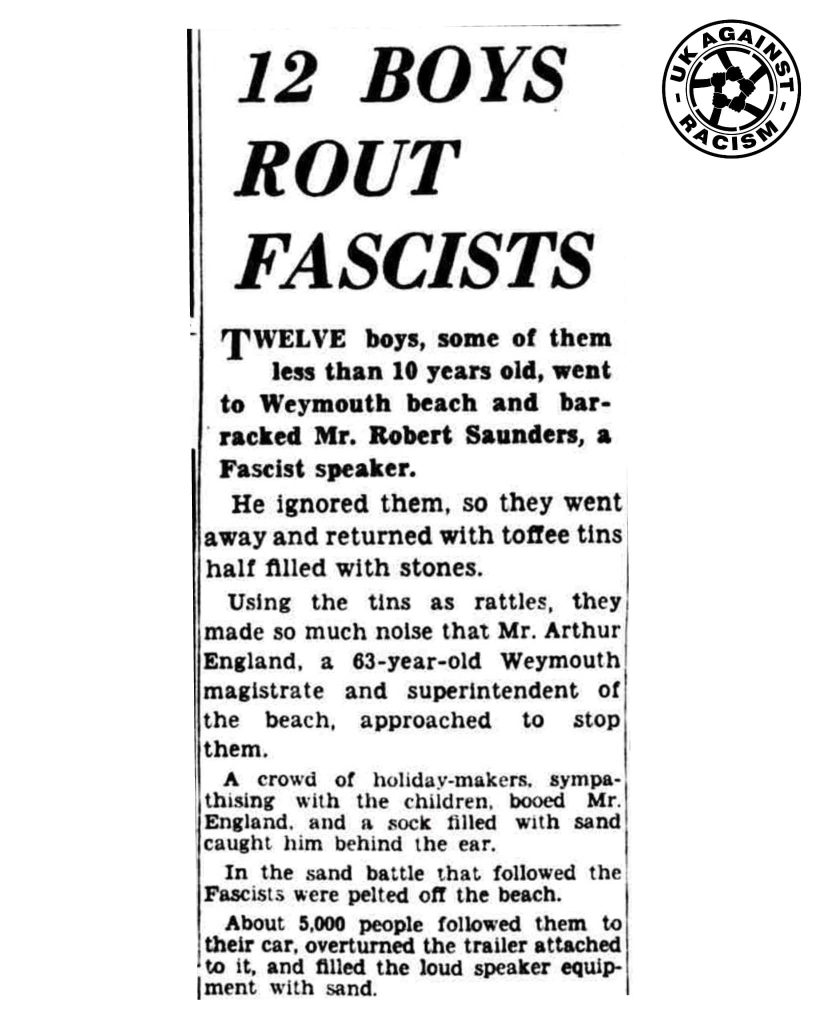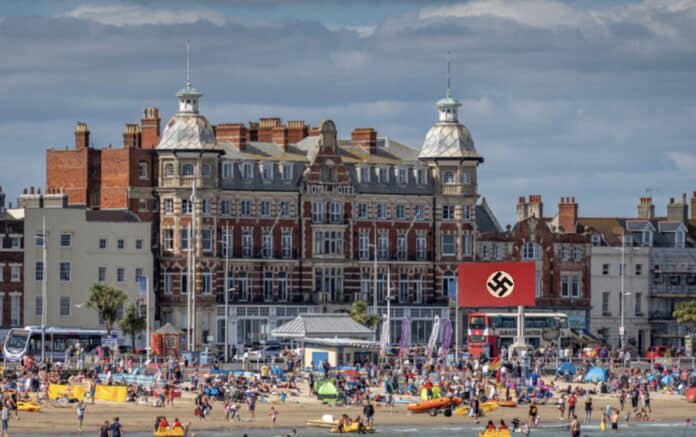According to historian Keith Thompson, Robert Saunders (1910-1993) was a Dorset farmer and a member of the British Union of Fascists. He could probably have become Vice President of the National Farmers Union. However, before the election, he announced that he wanted all those who supported him to know of his support for British Union and the Union Movement. He wanted them to know that he had been against the war with Germany in 1914. He did not win the election, but he only lost it by one vote. In the 1970’s, Saunders was the TV spokesman for the National Farmers Union, and he was awarded the OBE for his services to farming.
It was in 1933, while visiting close friends, that Bob was given a copy of Blackshirt. After reading it, he then sent off for a copy of Mosley’s book, The Greater Britain, and found the policies sensible and long overdue. As a result, he joined the movement and never left it. The way he felt, as a young man, is best described by him. Writing for the book “Mosley’s Blackshirts,” he writes, “We were proud to be British in the 1930s, and yet, within that vast Empire, every conceivable raw material could be found; every element for wealth existed. Britain had a large proportion of her people unemployed and suffering a depth of poverty quite unknown today. Its position as a world power was being undermined by largely unilateral disarmament, which left it without adequate defences. Agriculture was being depressed by imports of cheap food, which ruined the farmers and left them to face bankruptcy”.
After a week’s training at the BUF National Headquarters, Saunders returned to Dorset and set to work building up a local branch. He became District Leader for Dorset West while Dorset South and Weymouth came under Mr. C.H. Sureties. Saunders often spoke at Weymouth Sands, alongside Flo Elliot, Tommy Moran, and Rafe Temple Cotton from Devon. He took part in the BUF . campaign during the Abdication Crisis in support of the King, believing that the King of England should be able to marry anyone he chose.
In 1939, the main British Union annual camp was held on Saunders’ farm, in Dorset. He was imprisoned during the war as were so many others who wanted peace with Hitler’s Germany, provided that no British interest was at stake. When the war was over, Saunders became a member of the Union Movement Agricultural Council with Jorian Jenks. They produced a policy booklet called “None Need Starve.”. In his later years he often wrote articles for “Comrade,” the F.O.M. magazine, and attended their functions whenever he could.
Robert Saunders and the Rise of Fascist Ideology in Dorset
The early 20th century was a period of significant political and social change in Europe, marked by the rise of totalitarian ideologies. Fascism, with its emphasis on nationalism, authoritarianism, and militarism, found proponents in various parts of the continent. In England, one of the lesser-known but influential advocates of fascism was Robert Saunders, whose activities and ideology left a notable imprint on Dorset.
Robert Saunders was born and raised in Dorset, a county known for its rural landscapes and historical significance. The post-World War I era in Dorset, like much of England, was characterised by economic difficulties, social unrest, and a disillusionment with traditional political structures. Saunders’ early life in this environment shaped his worldview and fostered a sense of nationalism and a desire for strong leadership.
Growing up in a conservative community, Saunders was influenced by the nationalistic and militaristic sentiments that were gaining popularity across Europe. His exposure to the writings of Italian fascists and the speeches of leaders like Benito Mussolini further solidified his belief in the need for a fascist transformation of society.
One day Saunders decided to organise a fascist meeting on the sand on Weymouth beach. However, he was in for a shock when some local boys took umbrage and decided to ensure that these far-right bullies were sent packing.
Thank goodness for twelve well-raised boys

The lesson here is that just because racist bullies click their fingers or attempt to frighten us, we, like those boys, can defeat them.
At the end of 1951, Saunders resigned as local constituency organiser of the Union Movement in order to devote more time to wider agricultural and local community matters, taking up office in the National Farmers’ Union, for example. However, although giving up public involvement in local Union Movement activities and formally resigning from it in 1963, he continued to maintain a close interest in the movement, advising and corresponding with Mosley and other National Headquarters officials, mainly on agricultural and food policy matters, until 1970.







